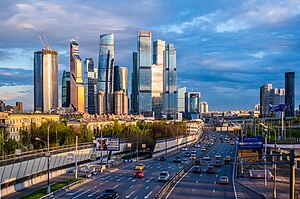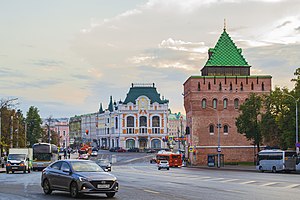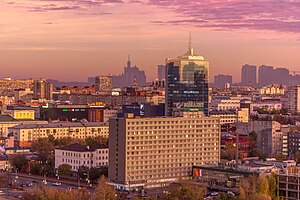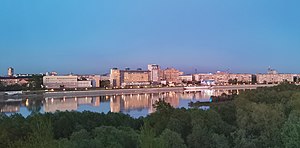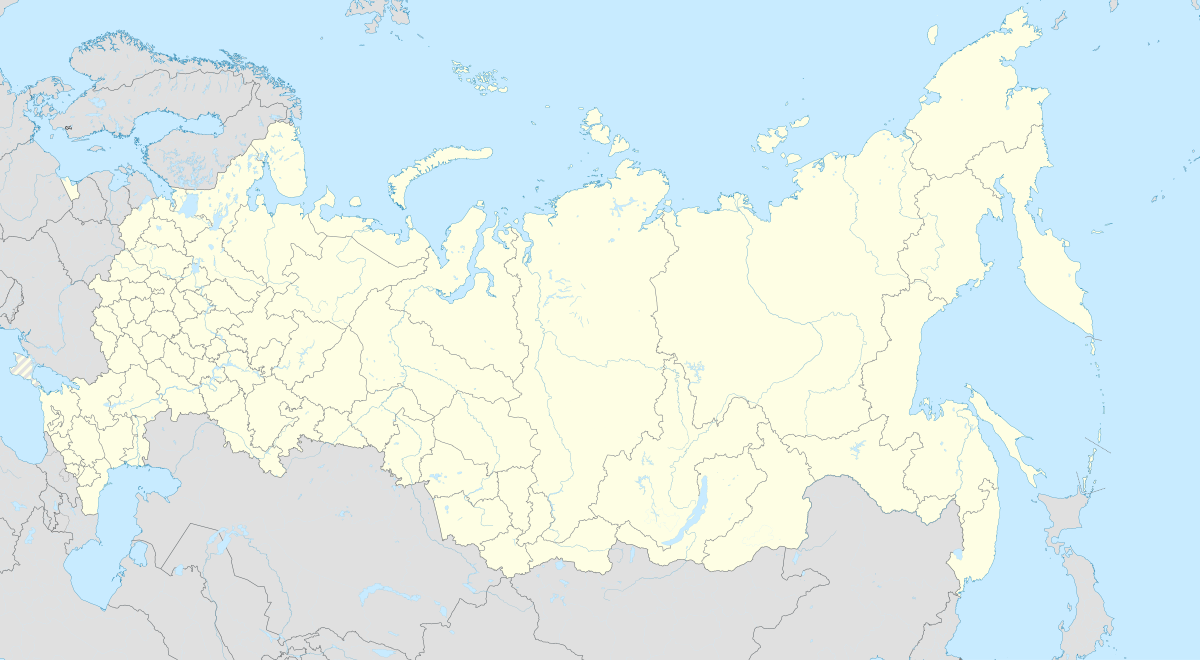
In Russia, the oblasts are 46 administrative territories; they are one type of federal subject, the highest-level administrative division of Russian territory.

Russia is divided into twelve economic regions — groups of federal subjects sharing the following characteristics:
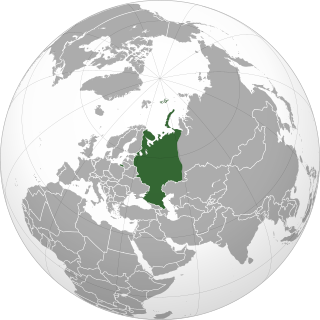
European Russia is the western and most populated part of the Russian Federation. It is geographically situated in Europe, as opposed to the country's sparsely populated and vastly larger eastern part, Siberia, which is situated in Asia, encompassing the entire northern region of the continent. The two parts of Russia are divided by the Ural Mountains and Ural river, bisecting the Eurasian supercontinent. European Russia covers the vast majority of Eastern Europe, and spans roughly 40% of Europe's total landmass, with over 15% of its total population, making Russia the largest and most populous country in Europe. It is divided into five Federal districts.
AiRUnion was a Russian airline alliance. It was the first airline alliance ever established in Russia. Member airlines and their affiliates enjoyed a high degree of co-operation in scheduling, ticketing, code sharing, flight transfer operations, frequent flyer program benefits, shared airport lounges, reducing costs, and sharing best practices. The airline and member carriers have since gone bankrupt in 2008. With government sponsorship, the alliance was planned to be resurrected as Rossiya as of 2008. However, this never took place.
Geographically, Siberia includes the Russian Urals, Siberian, and Far Eastern Federal Districts.

Russia, the largest country in the world, has international land borders with fourteen sovereign states as well as 2 narrow maritime boundaries with the United States and Japan. There are also two breakaway states bordering Russia, namely Abkhazia and South Ossetia. The country has an internationally recognized land border running 22,407 kilometres (13,923 mi) in total, and has the second-longest land border of any country in the world, after China. The borders of the Russian Federation were mostly drawn since 1956, and have remained the same after the dissolution of the Soviet Union. In 2014, Russia annexed Ukraine's Crimean peninsula in a move that remains internationally unrecognized.

Sibiryak was a passenger train which linked Berlin to some of main routes and cities of Russia. The train passed through Germany, Poland, Belarus, Russia and Kazakhstan, partly traveling on the Trans-Siberian Railway. With 5,130 km from Berlin to Novosibirsk it was the longest route of any that depart from a station within the European Union. The train service was discontinued with effect from 14 December 2013, due to lack of demand. The line was not actively promoted to potential customers by the Deutsche Bahn, but it was available in their search engine.
The 2014–15 Russian Cup, known as the 2014–15 Pirelli–Russian Football Cup for sponsorship reasons, was the 23rd season of the Russian football knockout tournament since the dissolution of Soviet Union.
UVT Aero is Russian airline headquartered in Kazan. Its main base is Ğabdulla Tuqay Kazan International Airport.
The 2016–17 Russian Cup was the 25th season of the Russian football knockout tournament since the dissolution of Soviet Union.

The 2017–18 Russian Cup was the 26th season of the Russian football knockout tournament since the dissolution of Soviet Union.
The 2006–07 Russian Cup was the 15th edition of the Russian football knockout tournament since the dissolution of Soviet Union. The competition started on 13 April 2006 and finished on 27 May 2007, with the final played at the Luzhniki Stadium in Moscow, where Lokomotiv Moscow beat FC Moscow with 1–0 after extra time.
The 2020–21 Russian Cup was the 29th season of the Russian football knockout tournament since the dissolution of the Soviet Union. The competition started on 5 August 2020 and concluded on 12 May 2021.

Legislative constituencies are used in Russia to elect half of the seats (225) in the State Duma. Each Federal Subject gets a certain amount of constituencies, proportional to their population, with every Federal Subject getting at least one. Every constituency is a single-mandate one, meaning each constituency sends one representative to the State Duma.
The 2021–22 Russian Cup was the 30th season of the Russian football knockout tournament since the dissolution of the Soviet Union. The competition qualification started on 14 July 2021 and it concluded on 29 May 2022. The final was attended by almost 70,000 fans at the Luzhniki Stadium.


